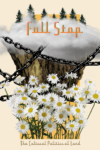 This piece is the introduction to the Full Stop Reviews Supplement #2. The issue includes some of our favorite reviews from the first half of the year, as well as excerpts from two of our recent panels, “Marginalized Work, Innovative Critique” and “The Book Review: Contemporary Forms, Forums, & Forces.” A PDF is available to download, for an optional donation, here.
This piece is the introduction to the Full Stop Reviews Supplement #2. The issue includes some of our favorite reviews from the first half of the year, as well as excerpts from two of our recent panels, “Marginalized Work, Innovative Critique” and “The Book Review: Contemporary Forms, Forums, & Forces.” A PDF is available to download, for an optional donation, here.
•
Academic literary critics have long eyed book reviewers, their public counterparts, with suspicion. For example, in The Armed Vision, a 1948 study of the methods of modern literary criticism, Stanley Edgar Hyman makes the following heavily weighted distinction, “the reviewer, more or less, is interested in books as commodities; the critic in books as literature.” Certainly there is a publicity function at the core of the book review as a genre. When the patronage system gave way to the publishing industry at the beginning of the eighteenth century, new techniques were needed to encourage a wider consumption of books and generate profit. Booklists were published in magazines, and then expanded to include summaries aimed at helping readers make more informed choices about their purchases. These evolved into what we now know as the book review. For Hyman, this proximity to the marketplace is a form of debasement, but all writing is shaped by its economic and technological contexts.
The book review, debased as it may be, has the advantage of being particularly sensitive to changes in the ways texts are written, produced, distributed, and consumed.
In the past fifteen years, changes to our media ecology have been rapid and extreme: mainstream publishers consolidating into conglomerate behemoths; Amazon selling books like they’re flatscreen TVs, shoelaces, and George Foreman grills; friends birthing small presses together in apartments and coffee shops; translators emailing across oceans/borders/languages; screens softly glowing, to be read in the dark. This has resulted in a proliferation of forms and forums for online writing about books. On social platforms like Goodreads, Amazon, Reddit, Tumblr, and Twitter, and in web-based magazines such as Bookslut, LA Review of Books, N+1, HTMLGiant, The Rumpus, The Millions, Entropy, The New Inquiry, 3:AM, etc., the book review has promiscuously mingled with other online genres, combining the literary and the commodity in complex ways and taking on new functions in the public sphere.
The book review as sales pitch. The book review as self-disclosure. The book review as trolling. As cultural criticism. As tastemaking. As love letter. As manifesto. As record. As screed.
Here at Full Stop we’ve been working to incubate these debased and nascent forms. Week after week our contributors engage with contemporary writing published by small presses, thinking-through-practice about how our contexts (personal, economic, political, technological) shape how we read and how we think about what we read.
This issue of the Full Stop Reviews Supplement features eighteen reviews published on our website during the first half of this year that highlight the range and depth of these attempts. In addition, as a special feature we’ve included excerpts from two recent events hosted by Full Stop. They extend and make explicit these experiments in writing about books, providing a glimpse into our ongoing conversations about the possibilities of the contemporary review.
Read the rest of the issue here.
This post may contain affiliate links.







